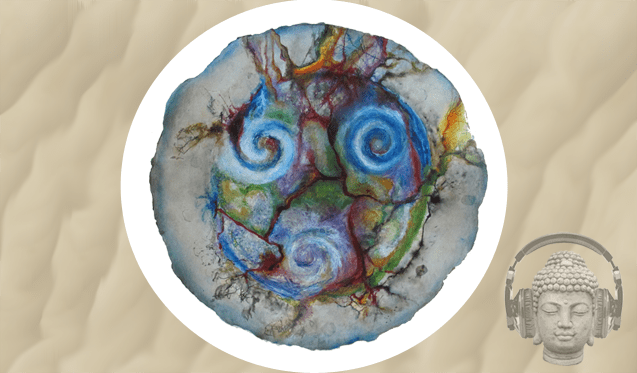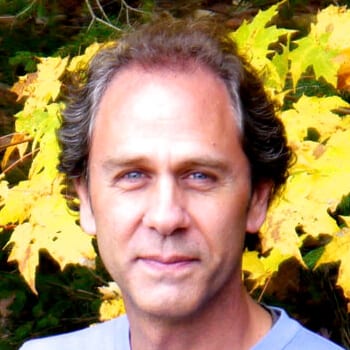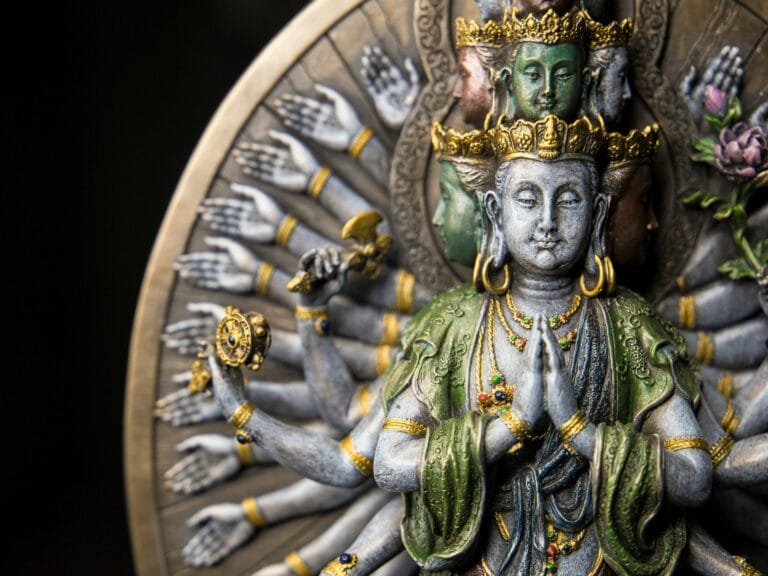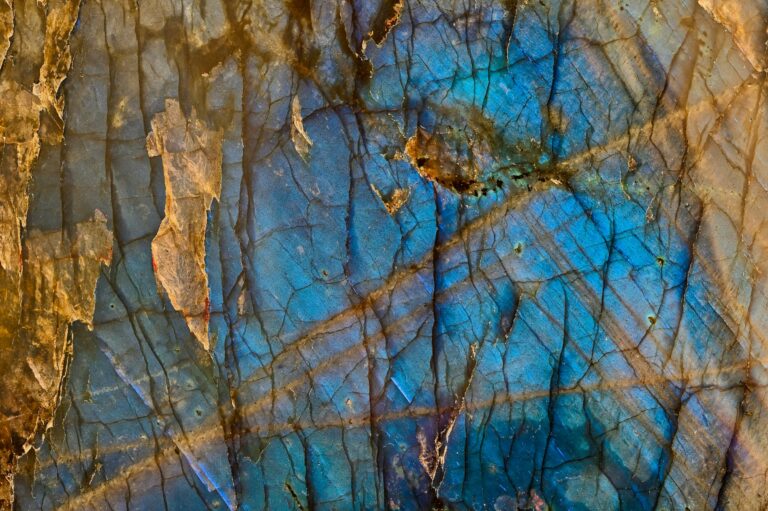One of the first dharma teachings that comes up for me around global climate change, and that is really a root cause of climate change, is the strong habit pattern we humans have towards desire and sense pleasure. We like what’s pleasant. We don’t like what’s unpleasant. We have talked about the four noble truths. The second noble truth is that suffering has a cause. Desire for sense pleasures. This is the cause of suffering in general, and it is a major cause of global climate change in particular.
We live in a world that is constantly changing. Some of what gets dished up is pleasurable to us, it feels good to our senses, and some of it is unpleasant, it doesn’t feel good to our senses. This is the truth of the world that we live in. This is just how it is. At the same time, we have a deep habit pattern of only wanting what is pleasurable and not wanting what is not pleasurable. So there is a discord between what we want and how things how are.
The Price of Discordance
It takes energy to stay in discord with the way things are. Gravity pulls us down. If I hold out my arm and keep it there, I can do that for a while. I can fight the truth of gravity for a short time period, but the longer I keep my arm outstretched the more energy it takes. This is true with everything in life – the longer we stay out of alignment with how things are, the more energy it takes to do so. As a species, especially here in the West, we are living out of alignment with the truth of the way things are. And it takes a ton of energy – literally, tons of coal and oil – to do that. It just does.
It’s a warm day outside, about 85 degrees. Yet in our homes, offices and dharma halls, it is 70 degrees. There is a gap. It feels better at 70 degrees and dry instead of 85 degrees and humid. It is more pleasant. We like it that way; we make it that way. Something is running that air conditioner: electricity. It comes from some place and takes energy. In the winter, we like our houses to be warm: 10 degrees below zero outside in the winter; 70 degrees in the house. It takes energy to keep that discord. The house wants to reach the outside temperature – if left to its own, that’s what would happen. It would just come into balance.
This is not about being uncomfortable. I’m not saying we should all be uncomfortable and flog ourselves and then we’ll be enlightened and global climate change will stop. It’s not about that. I am just bringing attention to the fact that staying out of alignment with how things are takes energy. Cities in the desert! This takes huge amounts of energy. The Colorado River does not reach the ocean, running dry 100 miles short of its ancient delta. Water is pumped out so that cities can be in the desert. We like it when its sunny and 80 degrees in January. We don’t like it up north or out east when it’s snowing and cold. Let’s go to the desert and live. We can. With our technology we can. But it still takes energy. Houses built solely for the view and not for a particular placement on the land that might actualize some solar gain from south facing walls or windows. Repainting the inside of our house only because we don’t like the color anymore. These things take energy. Paint comes from oil. These things aren’t wrong or bad. It’s just that the more and more we live our lives solely based on maximizing what is pleasant and minimizing what is unpleasant – if this is the main paradigm of our society – then we are going to use a lot of energy doing so because it is not in alignment with the truth of how things are.
Some people say that the Buddha was the first environmentalist. Not because he was out there holding a sign that said, “Stop drilling!” but because he was an activist for people to see things as they were. He said, “Follow these teachings and you will know the truth of how things are.” If we see the truth of how things are we are in accord with the way things are and when we are in accord with the way things are it takes less energy. This is from the Tibetan teacher Atisha: “Friends, the things you desire give no more satisfaction than drinking seawater. Therefore, practice contentment.” Contentment with the way things are. They are pleasant. Okay. They are unpleasant. Okay. Practicing contentment naturally lowers our carbon footprint. You don’t hear that on the news much.
This first Dharma principle that really is one of the pillars that supports global climate change is our addiction – our strong, strong habit pattern in the heart and mind – for sense pleasures. Then another principal that comes into play is the Sila practice – the ethical conduct or morality practice. I just want to come at this from one angle.
Is This “Mine”?
This idea that human beings can own land – and that the things of the land can be ours – is not in line with the truth of how things are. It is completely made up! We made that up. Why? Because it suits our purpose. It suits the desire for sense pleasures. Everything is connected to everything. Everything gives rise to everything else and in turn is created by everything else. How could it be possible to extract something from that level of interdependence and call it “mine”? It is not possible to do so and be in accord with the truth of things.
Monastics don’t own anything in this tradition. They have maybe two sets of robes, a bowl, mosquito net – depending on where they live. In this way they are really congruent with the ways things are. Nothing is mine, nothing belongs to me, I don’t own anything – and they literally don’t own anything.

In the 1960’s when the first astronauts went out into space to explore the moon it was said that “we went out to explore the stars, and what we found out was the truth about ourselves”. This is what happened when these astronauts went out to the moon – they turned around and saw the earth. We had never seen the earth before from outer space. Of course one thing the astronauts didn’t see was lines between countries. It was so obvious. But that’s not all. What we could all see, for the first time, was that the earth is just this little blue-green sphere in the midst of huge, vast, vast space.
Wow. There aren’t many of these out there. And we are all in this together – in this precarious blue-green jewel floating in the middle of this huge universe. This is a completely different perspective than when we’re down here saying, “That’s your country! This is my country!” A completely different perspective that occurred when we went out to explore the universe and ended up finding out a deep truth about ourselves.
What if we switched our view? From owning things – including the land and the resources on the land or under the land – to being stewards of things. How might that impact the way that we relate to the things of the world? We would see that the things of the world are not ours to do as we please with for our own pleasure and satisfaction. There naturally would be more consideration for all of life including the generations that come after us. The decisions we would make about how we use the earth’s resources and in what shape we pass on the biosphere to future generations would be made with these future generations in mind. This is the Sila practice, applied to global climate change. This “right view” or “wise view” would engender a very natural morality of non-harming, not as another “should”, but as something that springs forth naturally from this view.
Just as Wise View is the forerunner on the Eightfold Path of Wise Speech, Action, and Livelihood (the morality section of the eightfold path), how we view this world, the things in it, and our relationship to it is going to lead to a certain kind of morality. If our view is that we own the world – that the things of the world are ours to do as we please with and no one should get in the way of that – then this view is going to engender a particular kind of morality. If our view is that we are stewards of this world, that will engender a different kind of morality.
This transcription has been edited for readability as a Dharma article. Find the third of four posts transcribing Chas’s talk here or, if you prefer, listen to the full talk from Dharma Seed: The Dharma Of Global Climate Change








